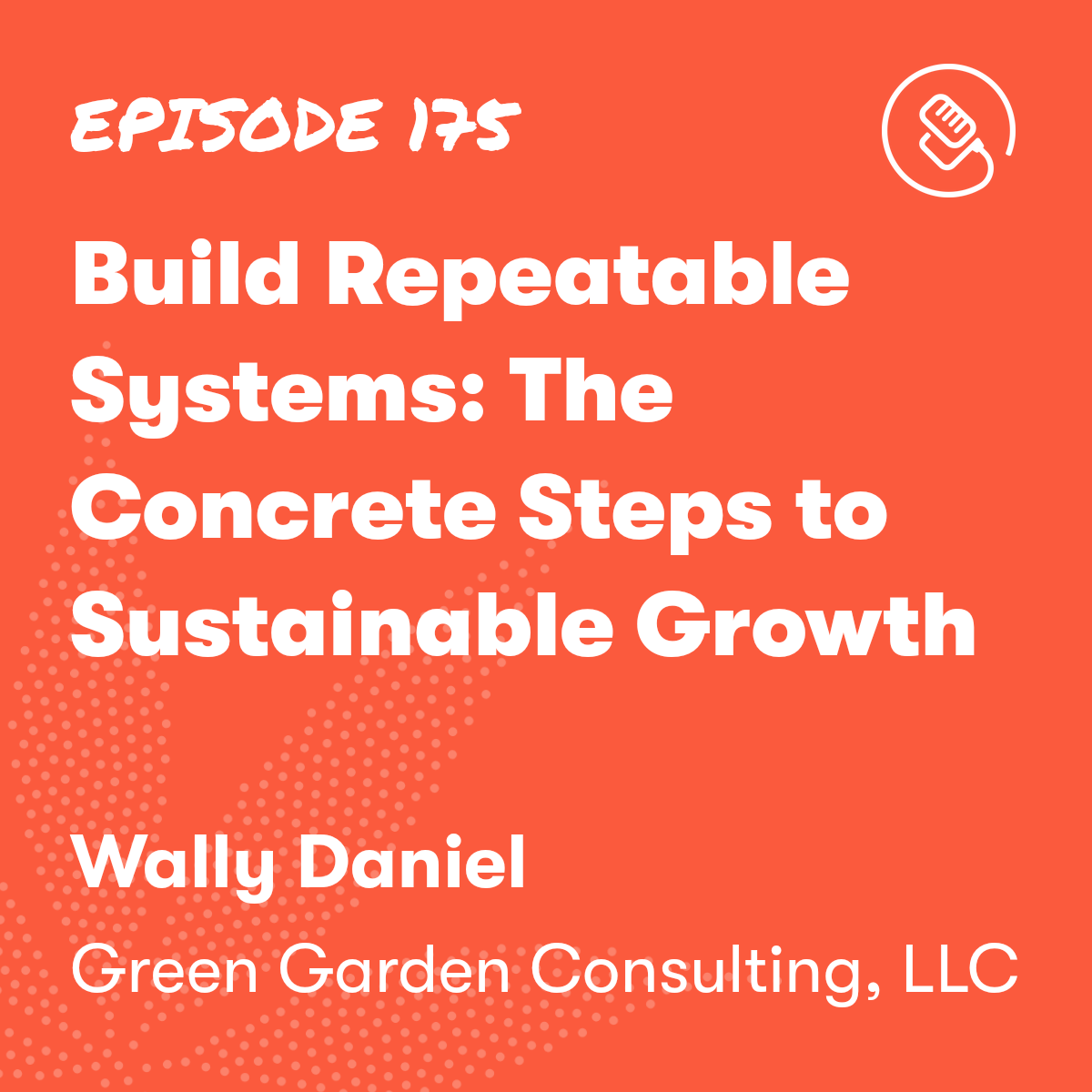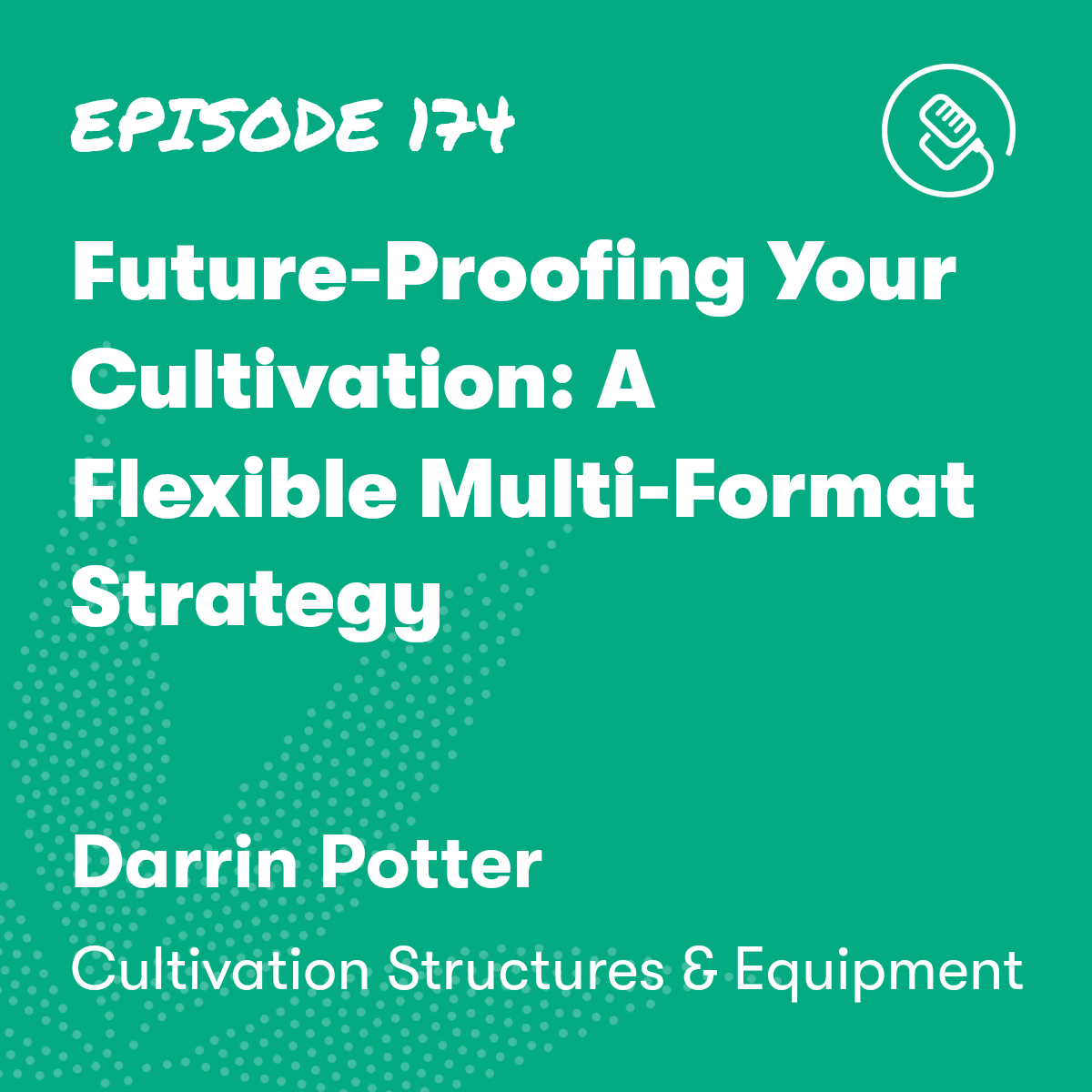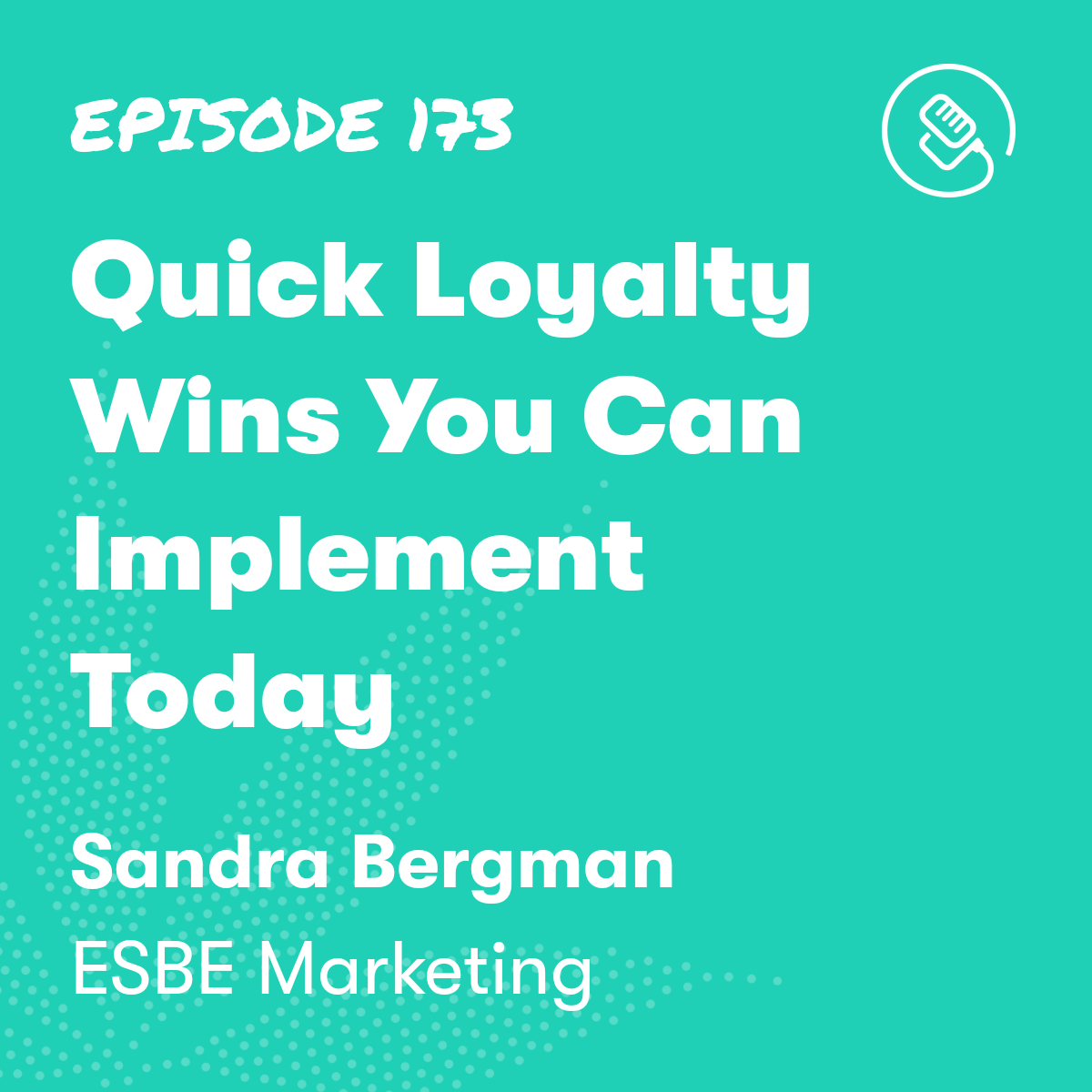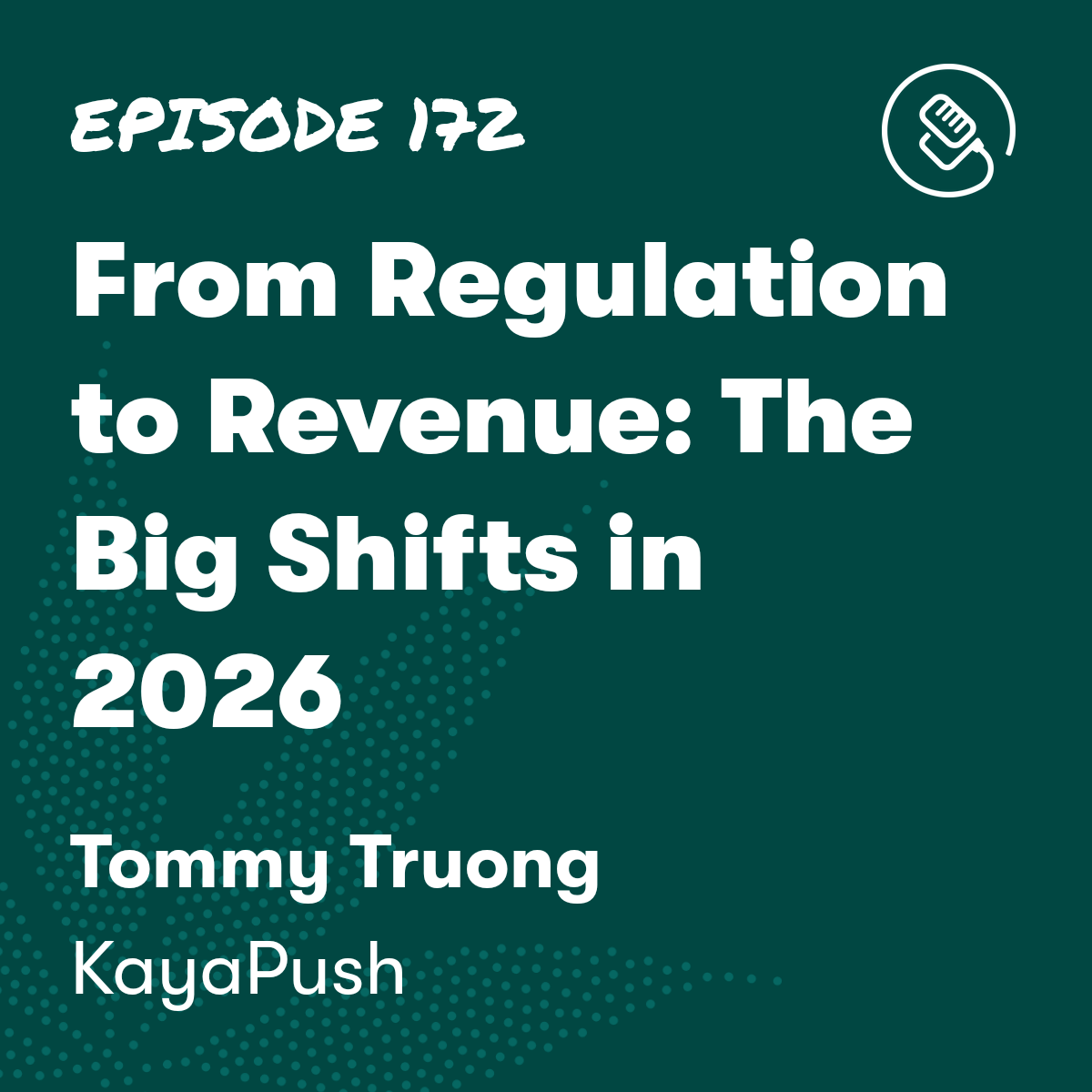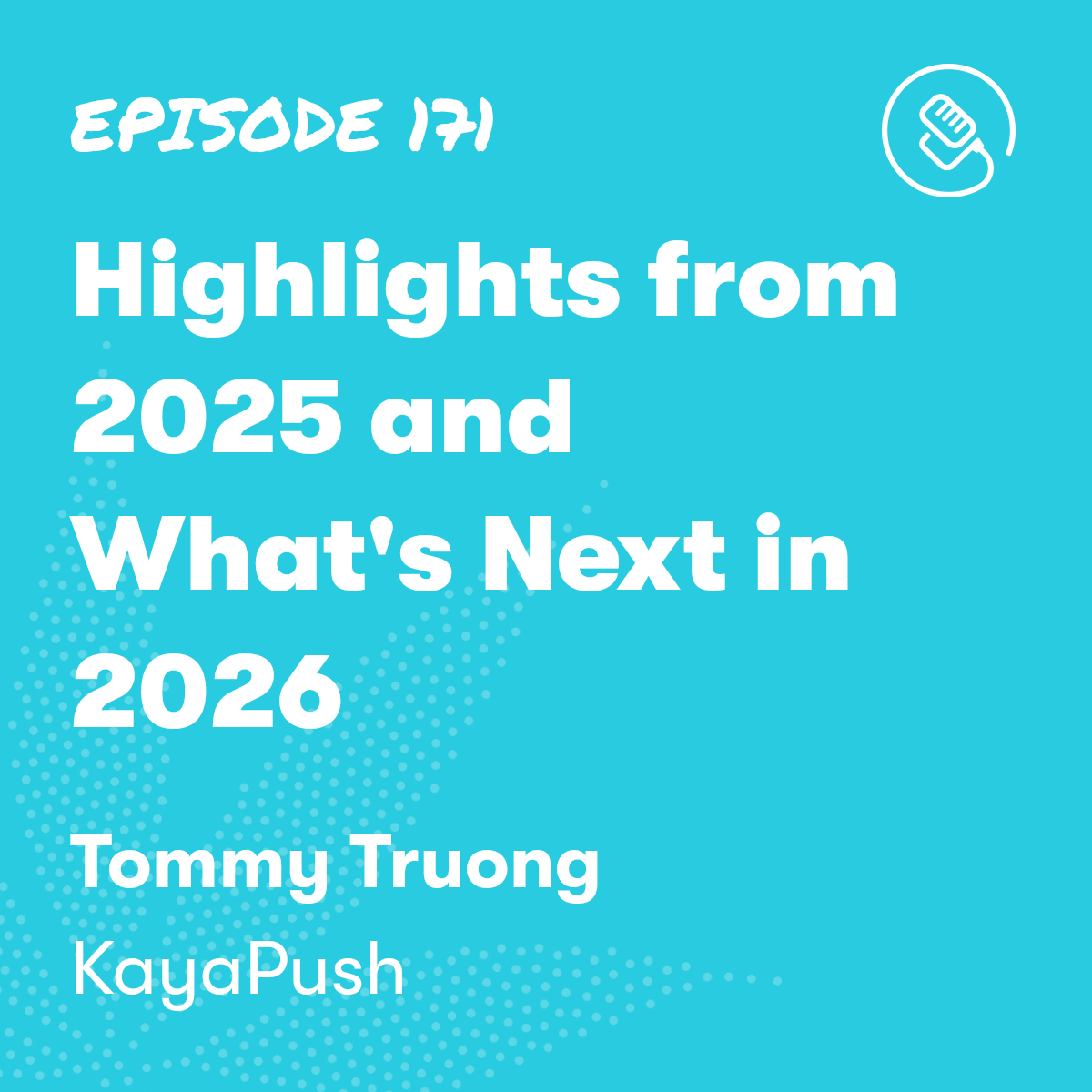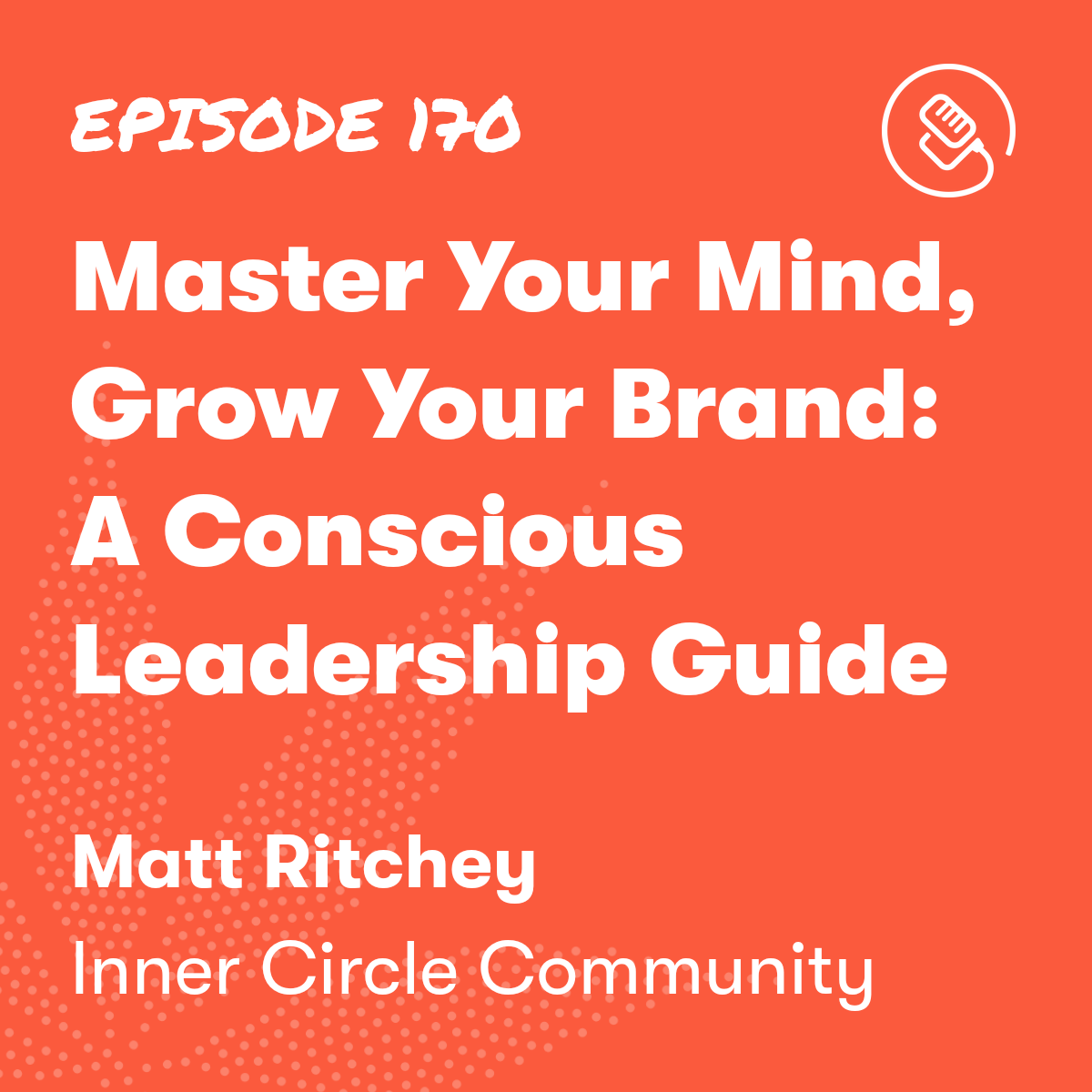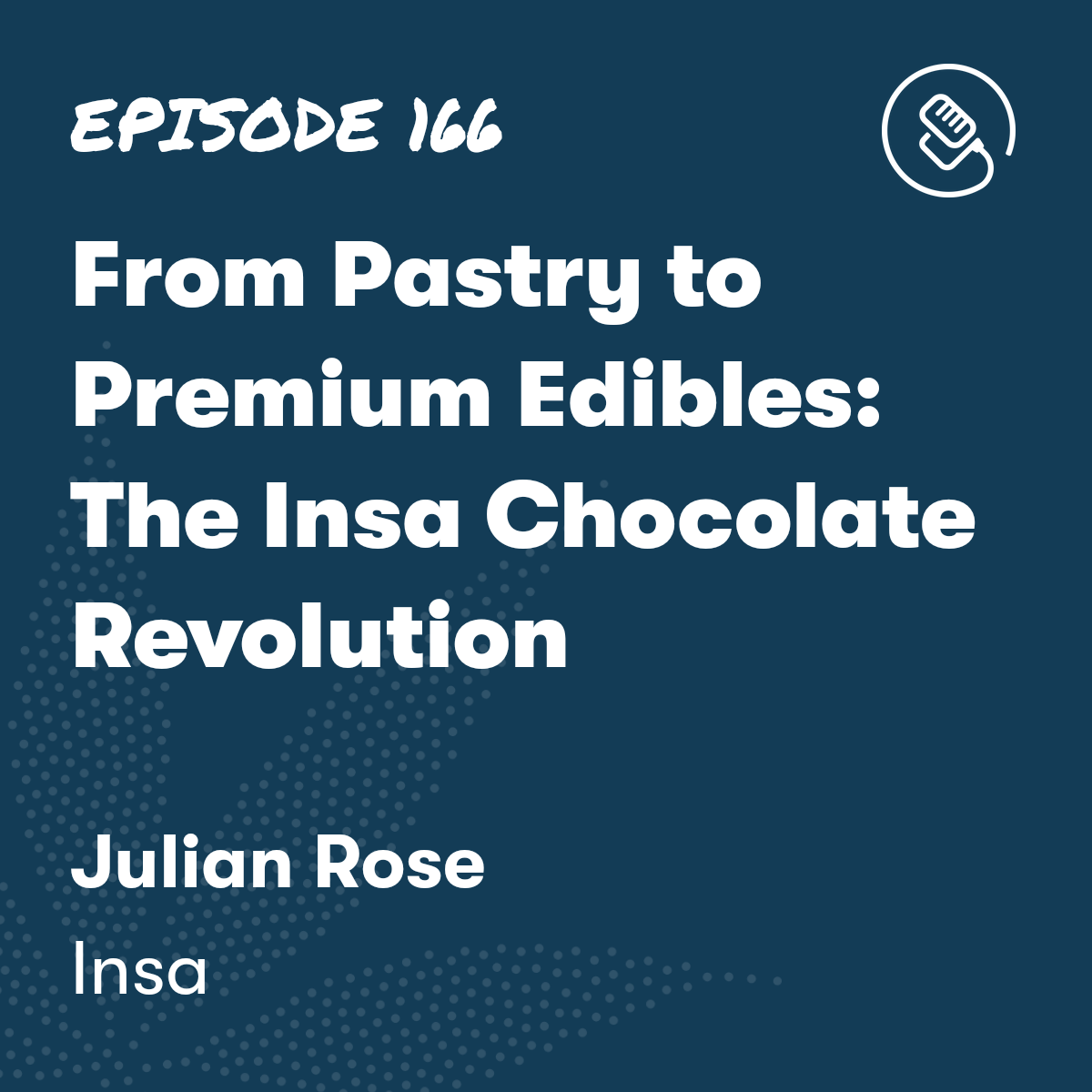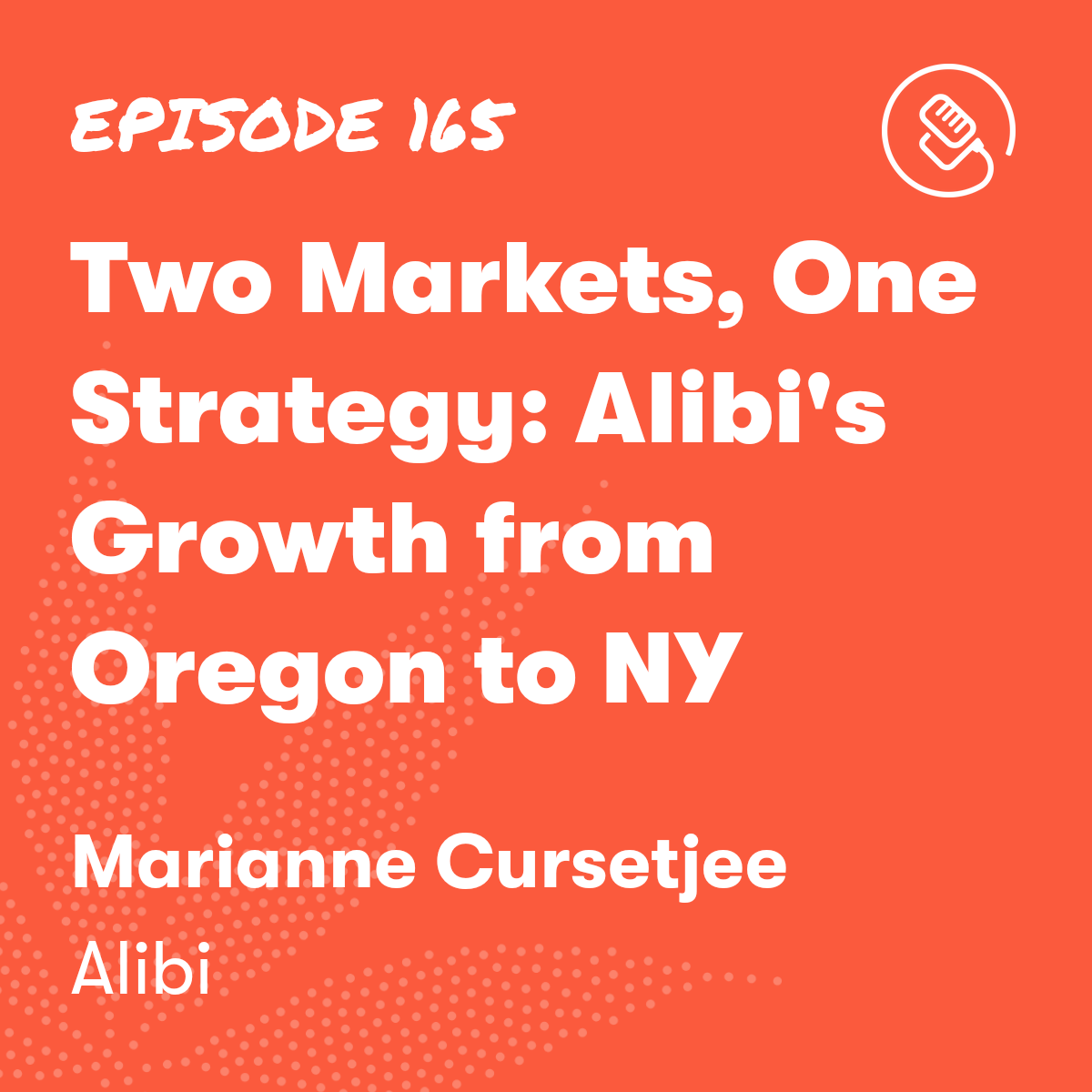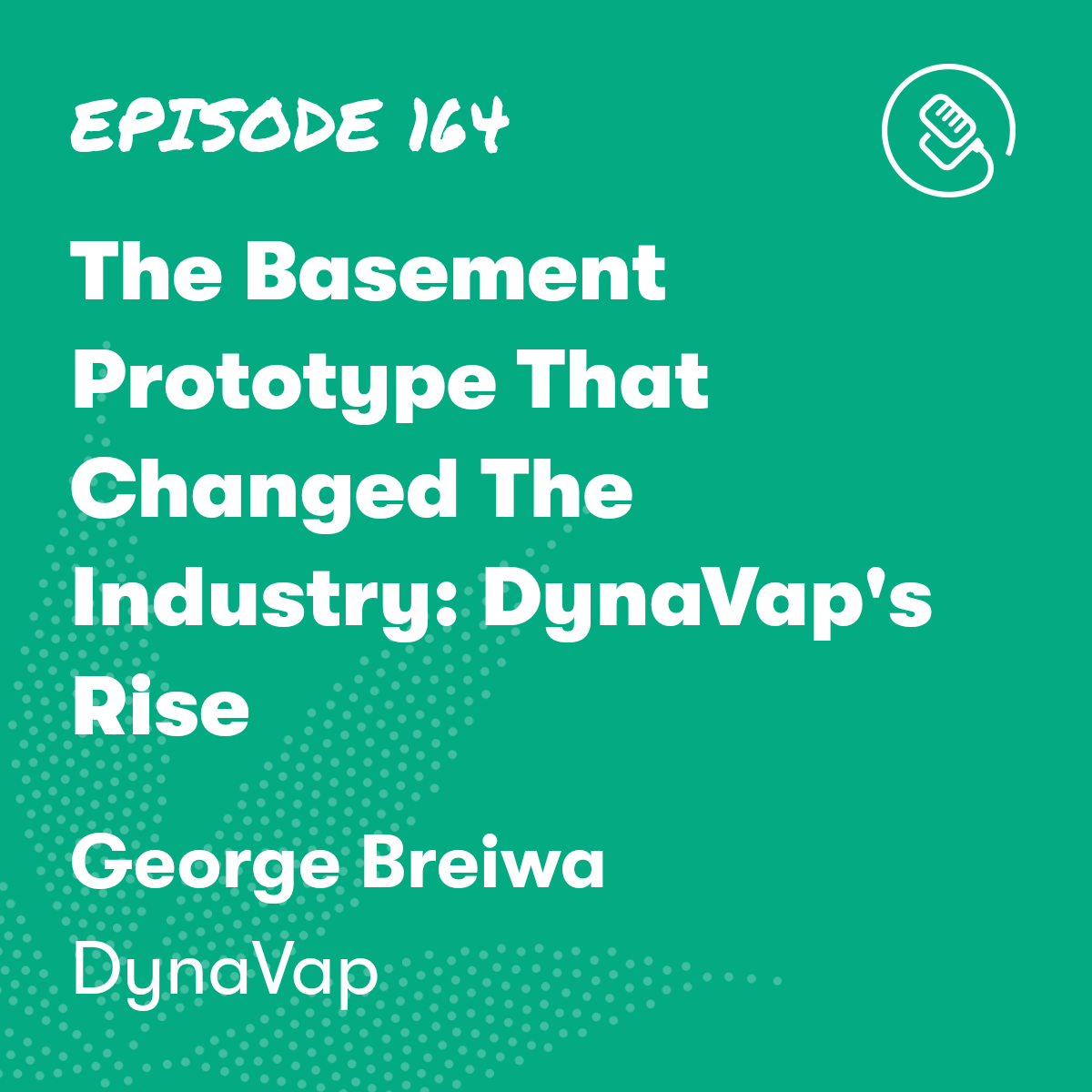

How New York Cannabis is Changing the Game with Jacobi Holland
Episode Description

Episode Transcript
Tom Mulhern: Today I have a conversation with Jacobi Holland, who's one of the co-founders of On The Revel. On The Revel is a parent company for a collection of curated educational experiences as well as a community for people in the cannabis industry.
From canna curious people who are just trying to figure out what is going on in cannabis to people who are working day in, day out, wanting to know more about cannabis, even connecting with business people, government, you know, it, it, it really is a community of people that reflect New York, the style of New York, the people there, but as well opening the cannabis industry to everybody, not just a select few who have the opportunity to work here.
So Jacobi and I dive into cannabis technology. We talk about dispensaries, we talk about the future of the cannabis industry. In New York, the entire cannabis industry has their eyes fixed on New York because really it is gonna be the epicenter, it's gonna be the hot new place for cannabis in the coming years.
And I know that this conversation is really gonna shed some light onto what it's gonna take for New York to be successful.
So we, we kind of dive into all of it and I hope you enjoy this conversation with Jacobi.
Tom Mulhern: Jacobi Holland is the co-founder of On the Revel, the parent company for a collection of curated educational and networking experiences, democratizing information for those interested in the regulated cannabis industry. On the Revel events known as Revelery are conferences aimed at fostering an inclusive, collaborative, and flourishing cannabis sector.
These regular in-person events along with On the Revel Dope People online membership community, podcast, and virtual experiences celebrate the diverse people that have been and are currently building the cannabis industry in the aim of developing its gold standard with opportunities for all.
Jacobi, welcome to the podcast, man. It's great to have you here.
Jacobi Holland: Hey Tom. Thanks for having me, man.
Tom Mulhern: Tell me a bit about your background and how did you end up in cannabis?
Jacobi Holland: So I studied math and I also studied communication.
When I graduated all my buddies, we worked at a company called Mindful. It was in Denver. We had, you know, cultivators, multiple dispensaries. We had a manufacturing lab, and I was legit the maintenance man. Like, I was just so intrigued by the industry. It was fresh. You know, I, I didn't really want to get a real big boy job at any point.
And so, my parents were like, honestly, I don't mind that you're in weed. I just don't know why you're the maintenance man. Like we just, you just got this math degree and I made a couple pitches to the, the leadership and eventually they, they bit that really my specialty is in front of like a spreadsheet and the computer and I can bring a lot of value.
So I'm, I'm grateful they took me up on that and you know, as, as fate would have it, my uncle was sick. He was battling cancer for, for many years. And without incriminating myself, I'll just say like he was living in New York and he magically received packs of weed that helped him deal with his chemo.
And that journey, I, I just really started to appreciate that this really is a medicine. You know, I was intrigued by the industry cause I was a stoner, but then once I kind of like really understood that like he needed this day to day and it needed to magically get to him when he needed it.
And there was a point when he went into hospice and I I told my boss at, at Mindful I gotta go. I don't know when I'm gonna be back. I went to New York. I took care of him for about two or three months. He passed away. And I was kind of dealing with that.
I realized I had been working remotely for months and this is before the pandemic, of course. And I was like, wow, I, I could do this all over, all over the country. So I made New York home ever since. Just put my roots here and, and it's been, no looking back. I love it here.
Tom Mulhern: You had like a reverse Goodwill Hunting cuz like he was like the janitor and then he became a math person and you were a math person and you became the janitor
Jacobi Holland: a hundred percent
Tom Mulhern: So you went from that to starting on the Revel. So what was kind of the inspiration behind that? And then, you know, what does on the Revel do?
Jacobi Holland: On the Revel also interestingly enough was not exactly how we envisioned it either, so. I had been doing this consulting, I had clients throughout the country, like, you know, Washington, California, of course Colorado, I think DC And I decided that like my time was too valuable and it's not scalable.
So I was trying to build a tech platform that did the same thing in kind of an automated SAS way. It's called Jade Insights and in that process I wanted to connect with investors and people in the New York cannabis scene. I have been to other events that were just really whack, honestly, and I did not enjoy them at all, and I've always found that I thrive better when I create my own environment.
I think a lot of us do. So. I met Lulu in that journey. She was doing something similar trying to launch a cannabis tech platform. We really hit it off like people that worked for operators with a tech background that are non-white males in the middle of New York, and we just like instantly just kind of vibed.
So we decided we would launch what was called the cannabis tech group. And it was purely going to be, you know, like a meetup. We just wanted to bring in people, have some good conversations and really just start. build our networks for investors. When I look back at the experience, I realize that things we did differently were not even intentional. We had created an inclusive environment. You know, I'm a half black male. That was in my twenties at that point. Lulu's a Chinese woman in her forties. So we just brought a very diverse, eclectic mix of people.
Our speakers were similarly diverse just because those were our friends that were knowledgeable. They came from existing markets kind of giving like the ground truth, like no BS. You know, the, the people that everybody met were, were like really instrumental to the things that they were doing in their career.
So it like leveled up whatever they were trying to work on, and that kind of became the pillars of how we operate today. And I, yeah, I think we just struck something that felt important and, and the community responded according.
Tom Mulhern: So you guys have built a pretty amazing brand, like even just going on your website. What was kind of the inspiration behind that?
It definitely reflects amazing graphic design and the style of New York. Like, was there a lot of thought put into that as well?
Jacobi Holland: Oh my God. Too much thought. . You know, so Lulu and I are both tech people and we really just kind of like design and iterate and throw things out. And if they stick, we, we rock with it. And if not, we're quick to kill things. And, you know, that's reflective in every part of our business. And I think there's a couple core things. One, we wanted nothing to do with weed in our name or our brand. It's. , this is bigger than weed. It's about people. So like, we don't need to even bring it up. If you follow us, if you pay attention, you'll know it's about weed. We don't need to say it in our brand.
So like we kind of stay away from like a lot of heavy green and stuff like that. And we also wanted to make sure that it, it felt like New York and I don't, I don't know how to explain that. It's been really hard when we bring in new designers to like get that across. and in fact, we don't really work with designers that aren't in New York just because there's something that like, it's just that grittiness, that real rawness, but that like really well designed stuff that we, we both appreciate.
Tom Mulhern: It definitely has that feel of New York like you. You can just sense that when you're on the website or even even the way you even thought through your conferences, like, so you have two arms of what you do, or maybe you have more, but you have Revelry, which is your live events and Dope People.
Let's start with Revelry. How did you focus on live educational experiences? Like why, why was that like, this is what we have to do, we have to educate do these live in person events. Like what, what, what was the, the thought behind that?
Jacobi Holland: Originally it was just to build community for ourselves and, and then we realized because we intentionally interview and reach out to anybody that comes to our events just to understand what are we missing, what was their experience like? And we realize like how much more valuable it was to the other people in the room to be in that experience than it even was for us.
We start with the community that we're trying to reach with this particular event, and we go out into the field and we just go learn what they care about.
And in order to create the best experience we could, we went to other events in those areas. We reached out to community leaders, both in cannabis and outta cannabis before we even invited a single speaker or marketed anything.
Jacobi Holland: Just to understand, what do people ask about, what are they curious about? So, first and foremost, we start with our target audience. We segment the types of people that are likely to attend and we kind of create an experience that's gonna make sure that the kind of canna curious 101 person from neighborhood X is going to get this experience.
And the person that's a vet, that's an investor, that's, you know, an operator and they've done this before, they're more qualified, they have more background experience and like they're gonna get this experience. And so, we start with the consumer in mind and we build from that. And I think that's what shows in our, our programming and why people, you know, tend to feel like we like, have put so much thought into it.
In reality, we just listened a lot.
Tom Mulhern: Listening and like really reflecting who you're, you're aiming at is, is so important. And so you said you, you took that and then created dope people. What is dope People, I mean, we're we're dope people, right? But like, what, what is dope people?
Jacobi Holland: It's one of the favorite, my favorite things that happened in 2020. And you know, like all other groups, we had to pivot. I think we had an event coming up like in April about the M R T A, which was the bill that ultimately passed for cannabis legalization. And we had, we had to shut that down. And so we did a Zoom webinar and we completely sold out of it instantly for that event. And I was like, wow, I think, I think there's something here to this online world. So we had some more webinars. We kind of evolved that into a podcast. But the thing that I couldn't quite figure out, was that once that experience is over, your communication channel ends.
And so yeah, sure, people want to ask me a question or two or ask the guests that you know, I'm interviewing, but really, once again, they want to connect with other people going through the same thing as them that care about the same things. And so what I wanted to understand was how can we make people connect with each other when the experience ends?So we have a Discord fanatic. And if you know anything about Discord, it's like you either gotta be like a crypto person or a gamer to be like deep in Discord. So we tested it out and people just kept showing up and it, it was like popping.
It was going on all the time. And like we weren't even doing anything and people were having their own conversations and I was getting updates of what's going on in New York from our discord. And people normally are asking me for the information . And so it was a complete flip. It was that our community was super engaged.
that's kind of where it started. We've since upgraded the platform, we went to a more user-friendly kind of platform that is not so intimidating for the people, you know, over 30 that are not crypto natives.
Jacobi Holland: And it's, it's been really cool to see.
Tom Mulhern: So looking at your community, you know, the Revelery community, the Dope People, what is your community kind of made. Above, like, is it dispensary owners? Is it different B2B software companies? Like who, who is a part of your, your community?
Jacobi Holland: I like to say that about 60 70% of our community are either entrepreneurs or aspiring entrepreneurs. Like that's, that's the core of who we are, are people that are trying to build shit. And that could be, I want to build a dispensary, I want to build , a software platform. I wanna build a brand or I'm currently operating in a different state doing this, looking into getting into New York.
There's a, that's, that's the core. We have a handful of people who we call like the canna curious, and that's kind of an endless stream of people trickling in. As we get bigger, as the industry gets bigger in New York. is their first cannabis event ever. They don't know, you know, left from right, like what's THC and cbd.
So that's kind of what we call the canna curios they're interested, they're most likely professionals trying to explore if this makes sense for a career change. And then I'd say we have another like 10 to 15%, which is a little bit more of a mix of investors and community leaders, people.
maybe are not interested in the business or interested in as a consumer, but they are interested in the impact that it makes on whatever space they take up in the world. And that's the, the ch the bigger chunk of who we are. But it's, it's open to everybody. We have like politicians sneaking in low key.
We have athletes and you know, music artists that like we'll see in there and. like fanboying from the stage, like it, it's cool.
Tom Mulhern: Now things are changing in New York. Obviously, you know, with, with the cannabis market opening up there, what do you kind of see for the future of the New York cannabis market in 2023 and beyond?
Jacobi Holland: So it's gonna be interesting because all of the conditional card licenses are just now starting to become operational, and so.
you know, for someone that's not in New York, there's a few dispensaries, probably like a hundred, maybe a little bit more, that are gonna be awarded to people that have been harmed by the war on drugs. They have been convicted of a cannabis related crime, and they have a history of successful businesses.
There's a small chunk of them that are probably make up, 10% of the indu of the retail dispensaries. I don't know, somewhere. So those are gonna open up now, and the weed that they're gonna have is from the original 250 plus cultivators, the conditional cultivators that were kind of grandfathered in from the hemp licenses.
And so there's a lot of talk about, you know, it's outdoor weed from people that are used to growing hemp. It's gonna be a little bit different than the you know, indoor cannabis that snobby New Yorkers are really used to. and it's gonna be really tough to convert people over. the thing I think a lot of people misunderstand is there's a lot of people that don't really care about the quality of weed. They don't want to buy it. On the low.
They want to just do a regular transaction and feel good about that and, There's millions of people in New York and tons of them are going to flock to these new dispensaries and good. They should. What's going to be interesting is which ones of these brands have lasting power? It's gonna be really hard to have kind of like a, a decent or maybe even subpar weed or product when the other licenses come that are really sophisticated, heavily capitalized, already have brand recognition in other states and try to take over.
But I guess my hot take is at the end of the day, New York brands are gonna win, like the, the legacy operators that are wise and get, get smart to like a licensing agreement or get their IP to like a really qualified operator and they're able to keep that, that same brand structure from the legacy market of decades and, and do a smooth transit.
They have a huge consumer base. They own the consumer experience and like they're the ones that are gonna win.
Tom Mulhern: Those smaller New York cannabis retailers are gonna, are gonna win. How can they win against these big MSOs that are gonna start coming in? Is there a strategy, for these new companies that are opening up, like what do they do?
Jacobi Holland: So to clarify, on my first prediction, I think the brands. Product brands of legacy operators are, are gonna stand a test of time. A handful of them kind of like, you know, Jack Daniels if you will. Right? But they'll be local New York groups.
For the dispensaries, I think it's going to be interesting how players outside of New York come into New York.
People here are very territorial and they really care about local things and they really care about their community. And if they have the option of faceless MSO, Dispensary A and slightly overpriced or slightly dingy community dispensary.
all things else the same they're always gonna choose option B because that matters. And they understand that like that, that dispensary is going to care more about your community. And I'm optimistic that that will, be fruitful. The thing that could really hurt them is being overregulated.
Right? And, and you see that in California and there's, you know, The taxes are gonna be a real pain in the butt for, for operators out here. And so if, if, if the OCM is just making things too tough for these small businesses it could be risky, but I'm optimistic.
Tom Mulhern: What about using a tech stack, like as these dispensary owners are opening their business, like are there certain tech stacks that they can use to grow their business or be more effective?
How can dispensary owners utilize technology and data to kind of help grow and scale their business?
Jacobi Holland: You know, it's a great question. I actually. Kind of unofficially consulted a, a well known legacy operator out here, and this was probably three or four years ago. I told them that their brand is cool, but the most important thing they have right now is the data on their consumer and they, they took what I said to heart and they cleaned up the whole data infrastructure.
They started tracking more metrics about their consumers and wait times and like, like a happiness score and like, you know, finding trends of what different types of segments were ordering. I think that level of sophistication is going to be essential so that you are not wasting your dollars.
Marketing barking up the wrong tree, right? New York is so vast. Find a sub segment that like really works for you either geographically or maybe you can deliver and it's like a, you know, very disparate group all over the city or, or the state, but, There's, there's so many options for people. You need to be very targeted and I think understanding your data, whether you are pulling it from, you know, a CRM that you hack together or there's sophisticated tools like, like you guys that are built for this, like you have to have a grasp on that and you have to invest in it because the big boys, they do invest in and they will understand who they're marketing to. You need to understand what your power is, and that's like being very targeted to your specific niche.
Tom Mulhern: What are some ways that, that these, these business owners can impact their local communities and reflect the communities that they're in?
Jacobi Holland: We did our block party in Bedstuy in August, and it's very clear to me that there will be dispensary owners in Bedstuy that are from Bedstuy. They're not going to have to spend any time trying to build up like, you know, social capital because people have seen that, that individual has been there, has been at protests, has been at community, you know, gatherings has been at, you know, community board meetings and people have seen them.
And I'm thinking of particular people in my head, but like, they'll walk down the street and everybody's saying hi to them and if that individual is partnered with or already a really sound operator that like really manages their cash flow, understands their cost model and like is running a sound operation, like that team is like unbeatable in they're very particular nuanced part of the world.
Now, will that team go and scale and take over other parts of, of New York or, or the country? , I don't know. Probably not. But they can just be the best in that particular area because people already know that you're about it. And I guarantee that if an individual is, is like the one I'm, I'm kind of thinking of, it's gonna be part of their business plan to reinvest in the community.
Like they're, they're making money so that they can solve problem X and their hood, and like that's what they want the money for. So it's like by nature in their business model.
Tom Mulhern: As they reflect their community, like it'll create a more inclusive, and I know this is your guys' passion to create a more inclusive, diverse, you know, open cannabis to be available to all. Is this kind of a step in that direction or, or what advice would you have to the industry as a whole to become more inclusive.
Jacobi Holland: it's, it's extremely challenging, obviously, and you know, in, in many regards. It's easy for me to say this from New York because we're starting with an already extremely diverse pool of people. Now, don't get me wrong in, in tech and in finance and all these other things that are in fashion that are based in New York, there's, they're not very inclusive.
But it, it is a good starting point is you have a good pool of people to start with, and I'm from Colorado. So my group of friends I worked with at Mindful, there's like seven or eight of us that were non-white engineers. And in my own ecosystem I didn't even realize we had a diversity problem because I just lived right here.
And as I was able to step back and, and, and from New York look at the rest of the industry, I think it comes, it, it comes down to first appreciating the advantages that that other. Have, and just being humble enough to say that. And a lot of times, you know, I'll get pushback from, you know, somebody that has worked their ass off to get where they are and, you know, maybe they're a white male in a, you know, a predominantly white city, and it's like you can't, it feels like you're taking away something of their greatness by saying it's worth acknowledging that it's even harder for, for other populations.
And that acknowledgement and that humility goes a long way for the way that you move. If you're willing to accept that, you know what, even though this was extremely hard and I worked my ass off, it would've been even harder for someone that didn't have the education or the access or, or, or the doors opened.
And that acknowledgement then creates a space where we can have a conversation of like, How can we right the wrongs of, of what happened? It's, an impossible task to get right. It really is. But I think people that are humble enough to accept that we haven't done it right so far are the ones that are on the forefront of changing things.
And it compounds, right? Like it, it really compounds over generations. So solving it today is, is not gonna happen, but getting 1% better each year, each month, each day, whatever we're able to do that compounds and, and that creates a tremendous amount of opportunity for the next generations to come.
Tom Mulhern: Totally. It creates that momentum that we can, you know, these communities can build on. And, and hopefully it can reflect, like you're saying, it can reflect the community around you. And it's not just one, one group that's overrepresented in the industry.
Jacobi Holland: You know what? One thing I'll say, Tom, that I'm, I'm super grateful for, it's an awkward conversation to have, especially when you go to a company that is, You know, run by, you know, 10 people on leadership that are all white males. And like I've worked for companies like that. I've consulted for them. I have best friends that are CEOs of companies like that.
Like there's no shade to it, but it's still an awkward conversation to have. And by building something like Revel that has been so impactful by doing it our way, it has opened up our ability to have that conversation with people and say, . I'm not saying this cuz I want to be fair. I'm saying this cuz it's actually better over here.
It's actually better when you have these other voices in the room and you're actually reaching new consumer groups and like, it's better for business. I'm really grateful that we've been able to have these conversations and, and kind of open up doors for change.
Tom Mulhern: Well, and it's one of the surprising things about cannabis, this industry is like, I've worked in insurance, I've worked in, you know, nonprofit, I've worked in all these education, but this is the, the industry that has had these conversations more than any other place that I've worked. It's hopeful that that's, that's kind of the, the culture of what we're building here in the cannabis.
Now one last question. Thinking of a dispensary owner, cuz that's, that's who a lot of our audience is, what is one tip you'd have for a dispensary owner to grow their business?
Jacobi Holland: I see way less collaborations outside of cannabis. So, you know, maybe in street wear or in like, you know, hiphop or something. Collabs are like almost played out at this point. It's like, okay, like everybody has had a collab with everybody , but I, I'm surprised that like the cannabis brands haven't reached out nearly as much to to do collaborations, and I think it's a missed opportunity.
And I should also clarify, a collaboration doesn't have to be with like Supreme, right? Like you can collaborate with a hyper local, small business or brand that your people are going to understand and appreciate. and you know, you could do a limited release with, you know, somebody that everybody in your community like really appreciates or a, a local brand.
And I, I'm surprised I don't see more of that.
Tom Mulhern: I've heard of collaborations between micro breweries and cannabis companies that like, you know, they, they share different flavors or whatever and they, they do this collaboration, but even I've even encouraged like dispensary owners to do collaborations with a humane society or something like, let's work together and put more good into the community, put more positivity out there. But I, that is such a good important thing. Like, let's collaborate with more than just another cannabis company with a cannabis company. Let's, let's, let's think broader than that.
Jacobi Holland: , I'm a huge fan of, of mainstream, like, just be that one part, cannabis part of a mainstream brand instead of trying to be all cannabis to everybody.
Tom Mulhern: Cool man. Well, how can people find out about you? I know coming up in February, you have a Revelery, you have your winter conference coming up. So how can people connect with you, find out more, join Dope People? Is it just, is dope people just for people in New York, or is it for anyone?
Jacobi Holland: It's for anybody, man. You can find us at ontherevel.com. The conference is coming up on the 25th, so. . If you're in New York, New Jersey, any close area come through, it's in downtown Brooklyn, extremely accessible. You can find that on our website. You can also sign up for Dope People. For now it's completely free.
As the the community grows, we're gonna start to put some more locks on it to try to, to make sure that we can cultivate and continue to cultivate like a very meaningful community. But yeah, it's free on our website, on the revel.com. Our Instagram is where you'll see a lot of teasers of the type of content that we create.
So that's at On the Revel. And then we also have our YouTube. We give away the talks from all of our conferences for free. We wanna make sure like that this is all accessible and the people that really want it, they go find the information and they dive deep and it's really cool.
Tom Mulhern: Jacobi, thank you so much for being on the podcast sharing. What you guys are doing, what you're creating.
Jacobi Holland: I really appreciate being on the podcast man. It is great to talk to you, share a little bit about what we're doing, and. I hope a little bit of your audience will kind of learn about us and, and likewise.
Tom Mulhern: I wanna thank Jacobi again for taking the time to chat with me about what On the Revel doing, Dope People Revelry, all of it, because he's do, he's created a community that reflects who he is, and I love it.
I love the fact that Jacobi and Lulu have really built a community that reflects the wider community around them. They've built this educational experience to help people in the industry learn more about cannabis and also to kind of help brands develop who they are.
And so I would encourage you if you're in New York or in that area, Get out to one of these Revelry events. Like he said, there's a Revelry Conference coming up in February, February 25th. And, you know, sign up. It, it, it's not too late. And if you can't make it join Dope People.
It's a great community of people that are aimed at learning more about cannabis, learning more about how we can work together. Make cannabis open to everybody to make a more diverse, more inclusive industry. So again, thanks Jacobi.
I wanna encourage you too, to go and subscribe to our podcast because you don't wanna miss an episode. We've got tons of great interviews coming up and you know, this is just an example of voices that we want to amplify, voices that are trying to make. Our industry even better. So head over to Kayacast.Fm there you can subscribe to the podcast, you can find past episodes.
We've, we've had some amazing conversations with people over this past, you know, few months that we've been running the podcast. And you can find the full archive there. You can find out more about Kaya Push company that sponsors this podcast. And again, thank you for listening to our podcast.
We appreciate everyone who takes the time to listen to the Kaya Cast Podcast.
